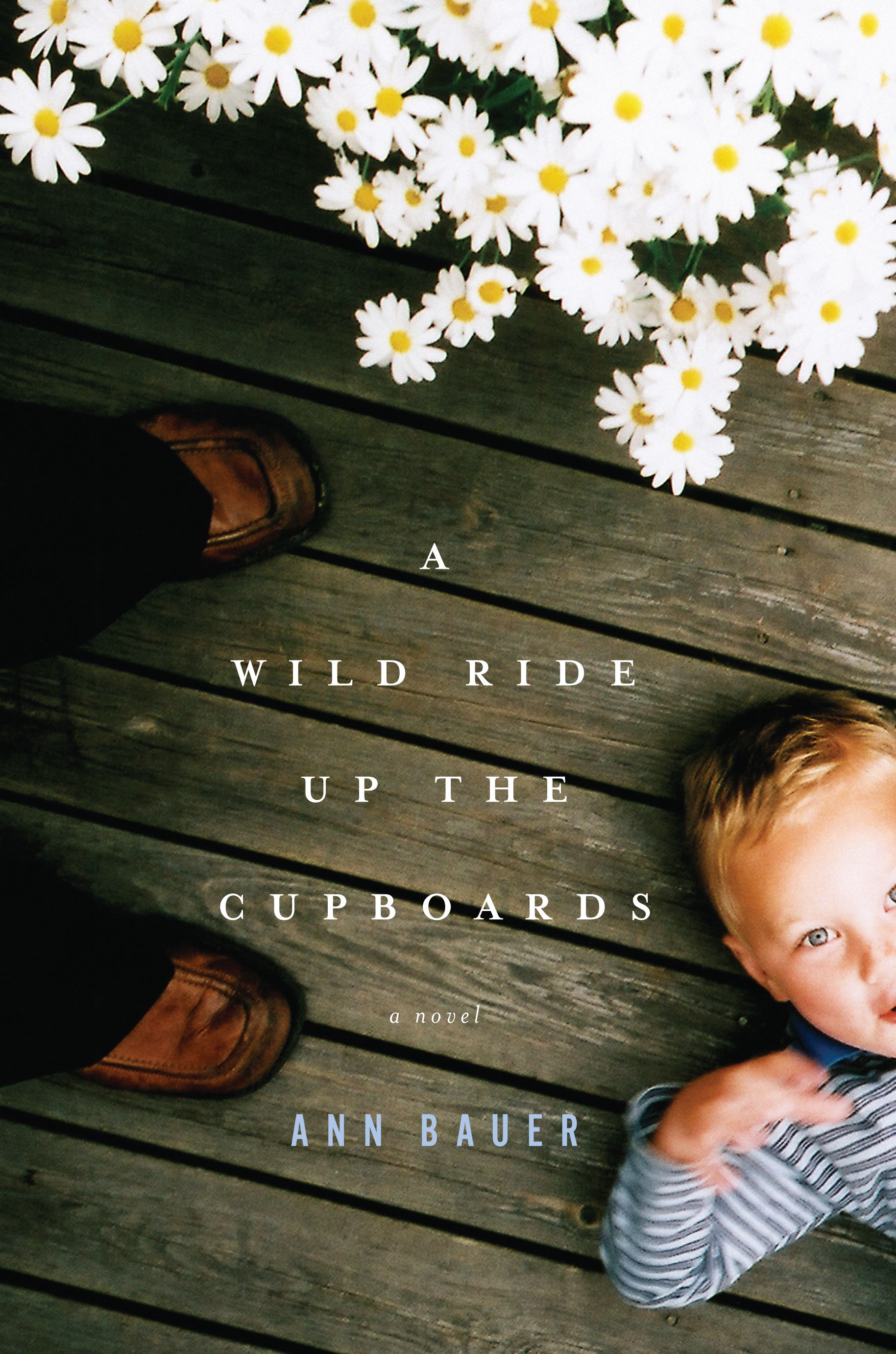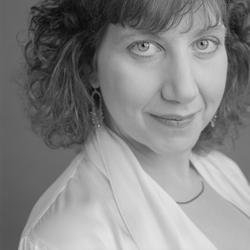Get our latest book recommendations, author news, competitions, offers, and other information right to your inbox.
Table of Contents
About The Book
A Wild Ride Up the Cupboards follows this nuclear family as Rachel and Jack try to come to terms with their son's descent into autism (or something like it) and struggle to sustain their marriage under this unanticipated strain. Threaded through the novel, too, is the story of Rachel's deceased uncle Mickey, who may have suffered from a similar disorder at a time when parenting, pediatrics, and ideas about child psychology were entirely different from today's. As Rachel delves into her own family history in search of answers, flashbacks to Mickey's life afford moving insight into the nature of childhood disorders and the coping mechanisms of different families.
A spellbinding, brilliantly nuanced portrait of a marriage and a family, this compelling drama also poses provocative, real-life questions: How much should a mother sacrifice for her children? How much intervention is too much? When do parents' ambitions for their offspring become counterproductive, even destructive? Who should decide what is best for the child? Is it ever worth sacrificing a marriage for a child?
A Wild Ride Up the Cupboards is a carefully crafted, compulsively readable, emotional page-turner that reveals a remarkable gift for language and storytelling and enormous insight into the complexities and dilemmas of domestic life and parenthood. It is a striking exploration of love, faith, and sacrifice that will resonate with readers everywhere.
Reading Group Guide
Get a FREE ebook by joining our mailing list today! Get our latest book recommendations, author news, competitions, offers, and other information right to your inbox.
1) Bauer shows us two families, past and present, dealing with kids who don't fit the norm. Discuss how these two families cope, comparing their parenting styles and attitudes. How much is personality and how much is a reflection of the times? How are Mickey and Edward alike? different? What are the similarities and/or differences between Rachel and Jack's marriage and that of Mary and Ted? How were attitudes toward disabilities different in the 1940s, 50s, 60s?
2) What benefit does the reader get from reading the Mickey and Edward stories side by side? Does the reading of one influence your interpretation of or reaction to the other? Edward's story is told in the first person, through Rachel's perspective. Mickey's story is told in the third person, through Mickey's perspective. Why do you think the author decided to narrate the different stories in this way? Does it influence the way that you read them?
3) How much of a role do you think religion played in the strengths or weaknesses of the Donnelly family? In what ways?
4) What does Rachel learn about her son through her exploration of her family's history? Do you think it is helpful to her? Does she learn anything about herself?
5) What kind of mother is Rachel? Is she trying to "change" Edward, or "help" him? Is there a difference? Does intervening to the degree she does mean that she loves him less or more? How is Jack as a father?
6) Rachel thinks of the "real" Edward as the little boy she got to know as a baby-the one who made eye contact and smiled at his parents-not the older child she sees now who is so withdrawn from the world. Which do you think is the "real" Edward, or is there even such a thing? Do you think Edward is happier when he is out and engaged in the world, or when he is inside himself?
7) Discuss the parenting decisions Rachel and Jack make regarding Edward's health, schooling and the funeral. Do they go too far? Who is to say what is "too far" in such a situation? Should it be up to the family, or the state? Do you think Edward is better off in mainstream classes or in a private environment? How did you feel about his outburst at the funeral and Rachel and Jack's choice?
8) What do you think of the special school that Edward eventually attends? Even though Rachel and Jack make little money, they don't qualify for financial aid at this school. Is it right that a school like this would cater mostly to inner city and low-income families?
9) Do you think the state is right to accuse Jack of child abuse? Is he a danger to his children? Discuss the turn of events when Jack and Rachel meet with the child welfare agent. How did you feel for Jack, for Rachel? What options did they have?
10) Jack's response to the state's accusations is to escape the situation and leave his family, whereas Rachel wants to negotiate with the police. Why are their responses to the situation so different? And what do you think of the way Rachel ultimately handles Jack's decision to go? What was the conversation between Jack and Rachel's father?
11) In the course of the novel we watch Rachel and Jack's relationship evolve and crumble. Would they have been happy in their marriage if Edward didn't have problems? How has Edward changed each of them over the years, for better and for worse? Is their marriage really over?
12) We see the intensely close relationship between Edward and his younger brother, Matthew. As Matthew gets older, what are some of the ways he helps Edward, both at home and at school? Do you think Edward also helps Matthew? Do you think Matthew suffers for having Edward as an older brother? Are there ways that he benefits?
13) What role does James play in the novel and why do you think the author made his character a gay man in the 1950's? What challenges does he share with Mickey and Edward?
14) Mary manages to sustain her marriage, though she loses both of her sons. Do you feel Rachel ultimately lets go of Jack in order to hold onto her kids? Which one is right? Who should come first for a woman-her husband or her child?
15) Discuss the relationship between Rachel and Mariel. What is their friendship based on? Will they continue a relationship in the future?
16) During the course of their marriage, Rachel asks Jack to do things that are very difficult for him. How does he respond? What does he ask of Rachel? Has one taken more responsibility than the other? Who pays the price?
17) What do you think Edward's condition really is?
Enhance Your Discussion
Discuss children with learning or other disabilities attending mainstream schools. Do you think the schools in your area should mix kids with learning disabilities into mainstream classes? Why or why not? Are there ways that the mainstream students can learn or benefit from the presence of their disabled peers, or is it too much of a strain on the teacher?
Visit www.annbauer.com for more information on the author and the book.
Product Details
- Publisher: Scribner (September 6, 2005)
- Length: 288 pages
- ISBN13: 9780743274791
Browse Related Books
Raves and Reviews
"Recalls the early work of Sue Miller and Anne Tyler." -- Providence Journal
"A triumph of good writing." -- The Washington Post
"Bauer expertly maps the ferocity and anguish of a parent's love for a child . . . [in a] spell of exceptional storytelling." -- Entertainment Weekly
"A beautifully rendered novel . . . [of] searing and often heartbreaking passion." -- Minneapolis Star Tribune
"This is a phenomenal first novel, a story of mother love . . . told with delicacy and humor." -- Garrison Keillor
"Bauer's prose often pierces with authentic, unsentimental power." -- Publishers Weekly
Resources and Downloads
High Resolution Images
- Book Cover Image (jpg): A Wild Ride Up the Cupboards eBook 9780743274791(3.5 MB)
- Author Photo (jpg): Ann Bauer Photo Credit:(0.1 MB)
Any use of an author photo must include its respective photo credit





